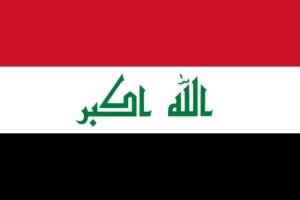The Cart
Synopsis and Significance
A simple man named Hanoon possesses only his vegetable cart (arabana), with which he earns his livelihood on the streets of Baghdad. His obsession with the news provokes constant anxiety. The play starts as Hanoon’s wife, Fedhila, and their children, prevent the drunken vendor from setting himself on fire. Shortly thereafter, he dies of a heart attack in his sleep. Hanoon anticipates a conversation with Munkar and Nakir, the two angels appointed by God to interrogate the dead in order to test their faith and assess their deeds. Hanoon’s life plays out before his eyes. Back in school, he argues with his teacher about the truthfulness of certain proverbs and the meaning of the words ‘house/home’. In the military, he is humiliated at the hands of a sergeant. Later, a politician in the post-Saddam era tricks Hanoon into voting for him with empty promises, then disappears. Afterwards, Fedhila goes to meet with the politician (whose name translates as “whatever you want”), but he escapes out the back door. These episodes are followed by the appearance of Bouazizi, the Tunisian street vendor whose self-immolation started the revolution in Tunisia, which then spread to other Arab countries., He talks with Hanoon about their deaths and the deteriorating situation in Tunisia and Iraq. At the end, both Hanoon and Bouazizi exit, leaving Fedhila pushing the cart with her four children. The play ends with the sound of an explosion followed by that of the squeaking cart.
Playwright’s Country of Origin

IRAQ
Production History
2013, Baghdad, International Theatre Festival, National Theatre
2014, Sharjah, UAE, 6th Arabic Theatre Festival
2017, Cairo, Egypt, Cairo International Festival for Contemporary and Experimental Theatre
More Information
Name of the Playwright in English
Year of Writing
Year of the First Staging


